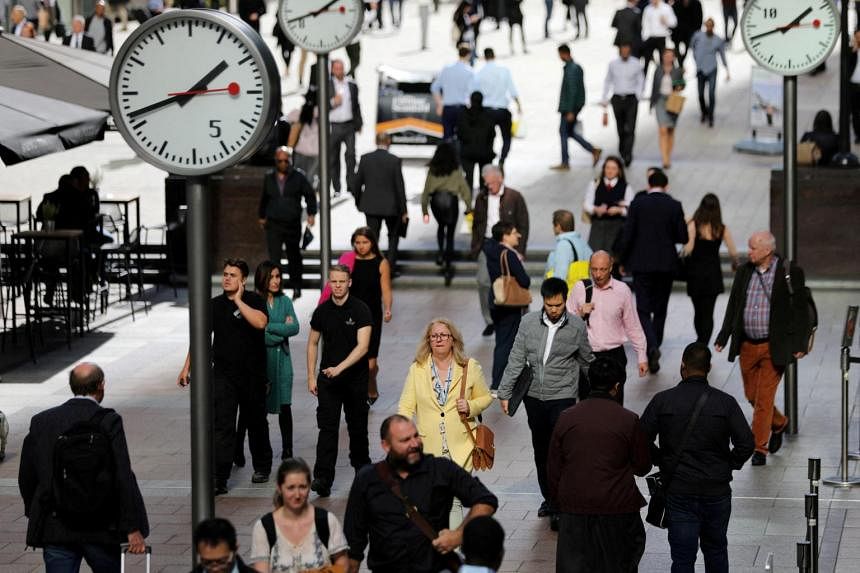LONDON (BLOOMBERG) - The British economy probably shrank for the first time since the nation was in a Covid-19 lockdown at the start of 2021, adding to pressure for action from the contenders vying to take over as prime minister.
Gross domestic product for the second quarter probably shrank 0.2 per cent, according to a survey of economists by Bloomberg News ahead of the official figures due to be published this week.
The drop would mark a pause in the recovery from the pandemic and the start of a more protracted downturn, which the Bank of England (BOE) expects to last into early 2024.
That outlook is roiling the race to replace Mr Boris Johnson as leader of the ruling Conservative Party and prime minister.
Ms Liz Truss and Mr Rishi Sunak, who are competing in the race set to conclude in September, spent the weekend promoting their ideas to help.
The central bank last week forecast that inflation will accelerate past a 40-year high to more than 13 per cent this year, weighing heavily on consumer spending power.
Former prime minister Gordon Brown and former BOE chief economist Charlie Bean this weekend added their voices to pushing for an aid package that would help those hardest hit.
They say the measures that Mr Johnson's government brought forward earlier this year are not enough.
"The main package for households was worth about £15 billion (S$25 billion), and there is certainly a case for something of at least that magnitude again," Professor Bean said in an interview on Times Radio.
Mr Brown called for an emergency budget, warning that almost half of all households will tip into fuel poverty this winter because of a surge in the cost of electricity and natural gas.
"A financial time bomb will explode for families in October as a second round of fuel price rises in six months sends shock waves through every household and pushes millions over the edge," Mr Brown wrote in the Observer newspaper. He is scheduled to appear on British TV on Monday.
The remarks and the outlook for rising natural gas prices add to the pressure on Ms Truss and Mr Sunak to explain what they would do to revive the economy.
Ms Truss, the front runner, has said she would push through immediate tax cuts to help.
Mr Sunak, the former chancellor of the exchequer, says those measures would take too long to implement and would not help enough of those most in need.
The economic backdrop is deteriorating rapidly as the surge in inflation makes businesses and consumers more cautious about spending.
The GDP report will probably show that the economy shrank 1.2 per cent in June alone, held back in part by bank holidays to mark Queen Elizabeth II's jubilee.
The BOE warned last week that Britain will probably enter recession in the fourth quarter of this year and keep shrinking for the whole of next year.
Energy prices are the biggest factor weighing on households.
Starting in October, utilities firms will be allowed to charge £4,000 a year for the average power and gas bill, the highest level ever and almost four times the level of a year ago.
The BOE last week said gas futures are now about double the level they were in May, triggering a big increase in the central bank's outlook for inflation.
Ms Truss spent the weekend drawing attention to her vow for an immediate tax reduction and said that measure could help prevent a recession.
"I do not believe in resigning our great country to managed decline or accepting the inevitability of a recession," Ms Truss wrote in The Sunday Telegraph.
"I would use this to immediately tackle the cost-of-living crisis by cutting taxes, reversing the rise on national insurance and suspending the green levy on energy bills."

